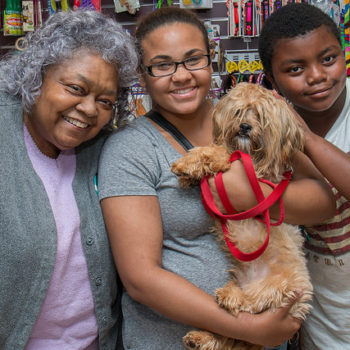While the pet adoption world is becoming more and more adopter-friendly, concerns about making sure the adoptions are successful still crop up fairly often. A just-published study conducted in an Australian shelter found that most adoptions are successful and most adopters are satisfied with their pet’s behavior, even when the newly-acquired pet was reported to have behavior issues.
Researchers surveyed 107 dog and 168 cat adopters from the Animal Welfare League South Australia (AWL) about their pets’ behavior in their new homes as well as the new family’s overall satisfaction with the pet.
In total, only 0.6 percent of cat adopters and 3.7 percent of dog adopters said they were dissatisfied with the behavior they observed in their new pet — even though they also reported behavior deemed “undesirable” in 53 percent of the adopted dogs and 14 percent of the adopted cats.
What’s the takeaway? Overall, nearly all people are happy with the pets they adopt, and are realistic and willing to work with behavior issues that may exist. Other interesting findings included that dogs without behavior issues spent more, not less, time in the shelter, and satisfaction with a new pet’s behavior wasn’t impacted by the presence of children or other pets in the family.
Of course, this data is from a single shelter that used an ASPCA pet-adopter matching program, and the surveys were conducted by a diverse group of volunteers over a period of time rather than a consistent core of researchers. Other studies, most of them more than a decade old, have found lower rates of satisfaction in new adopters. Still, as innovative programs steadily grow the pool of adopters, it’s good to know that happy endings don’t have to be a fairy tale after all.
Scott, Sophie et al. Follow-up surveys of people who have adopted dogs and cats from an Australian shelter. Applied Animal Behaviour Science, Volume 201 , 40 – 45. doi.org/10.1016/j.applanim.2017.12.021

